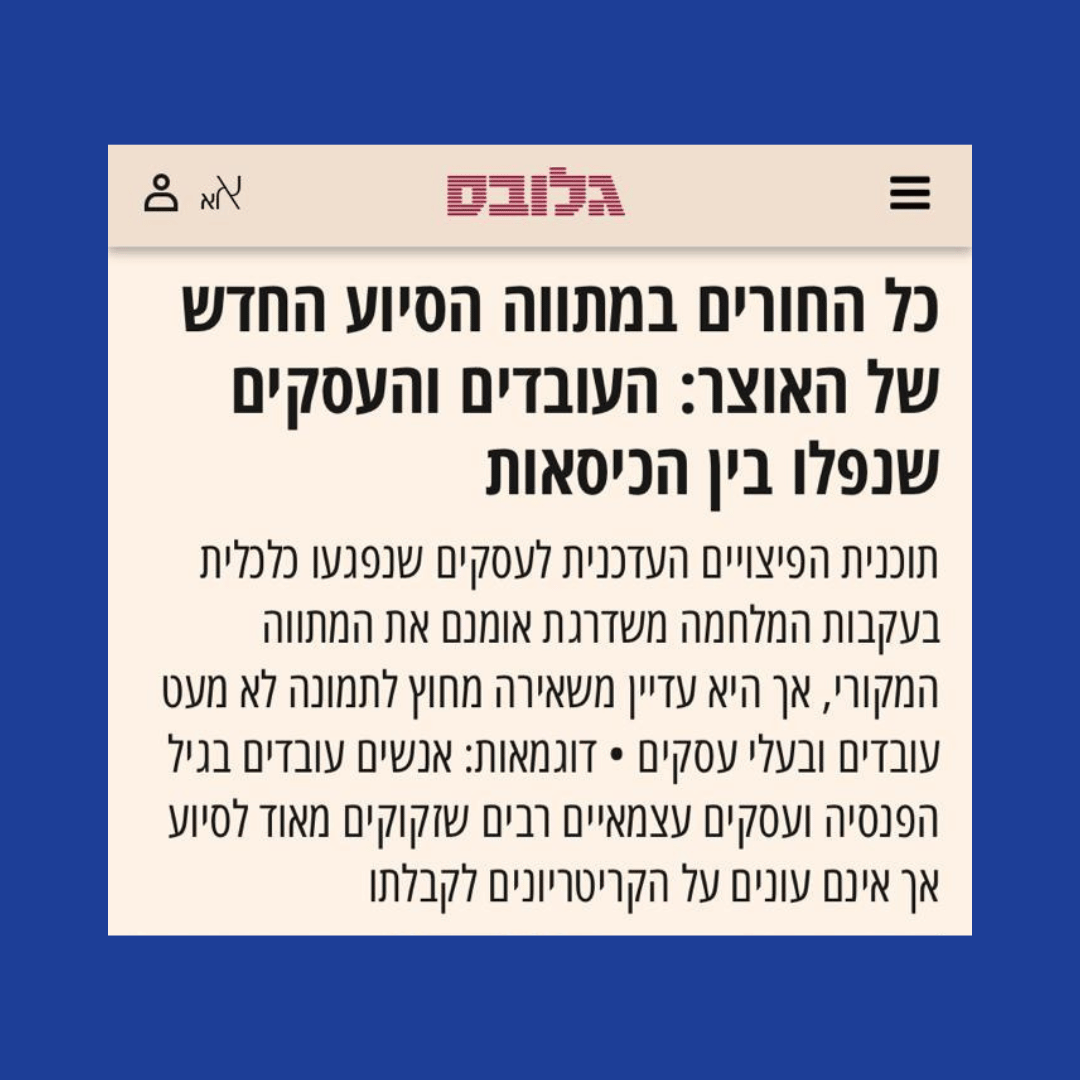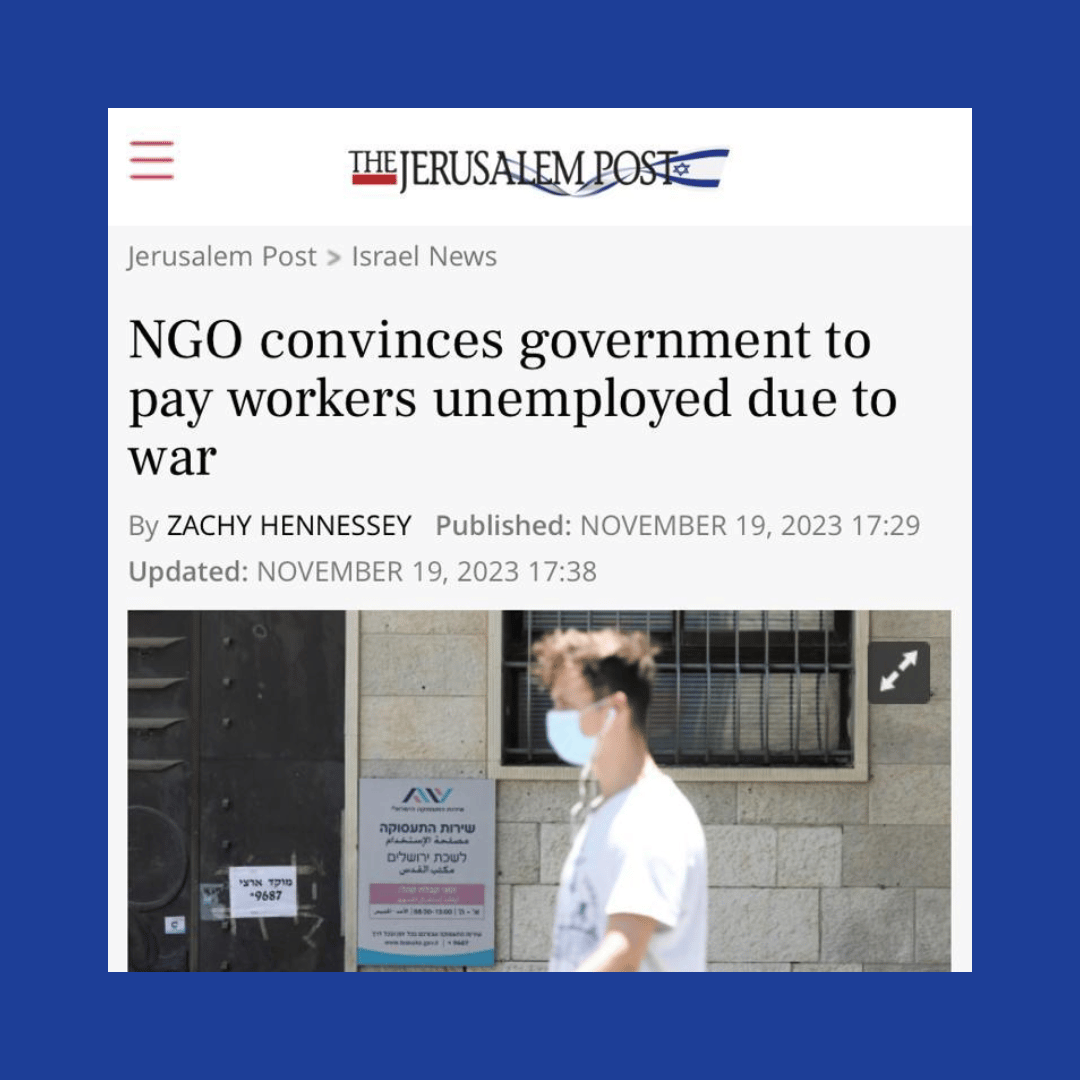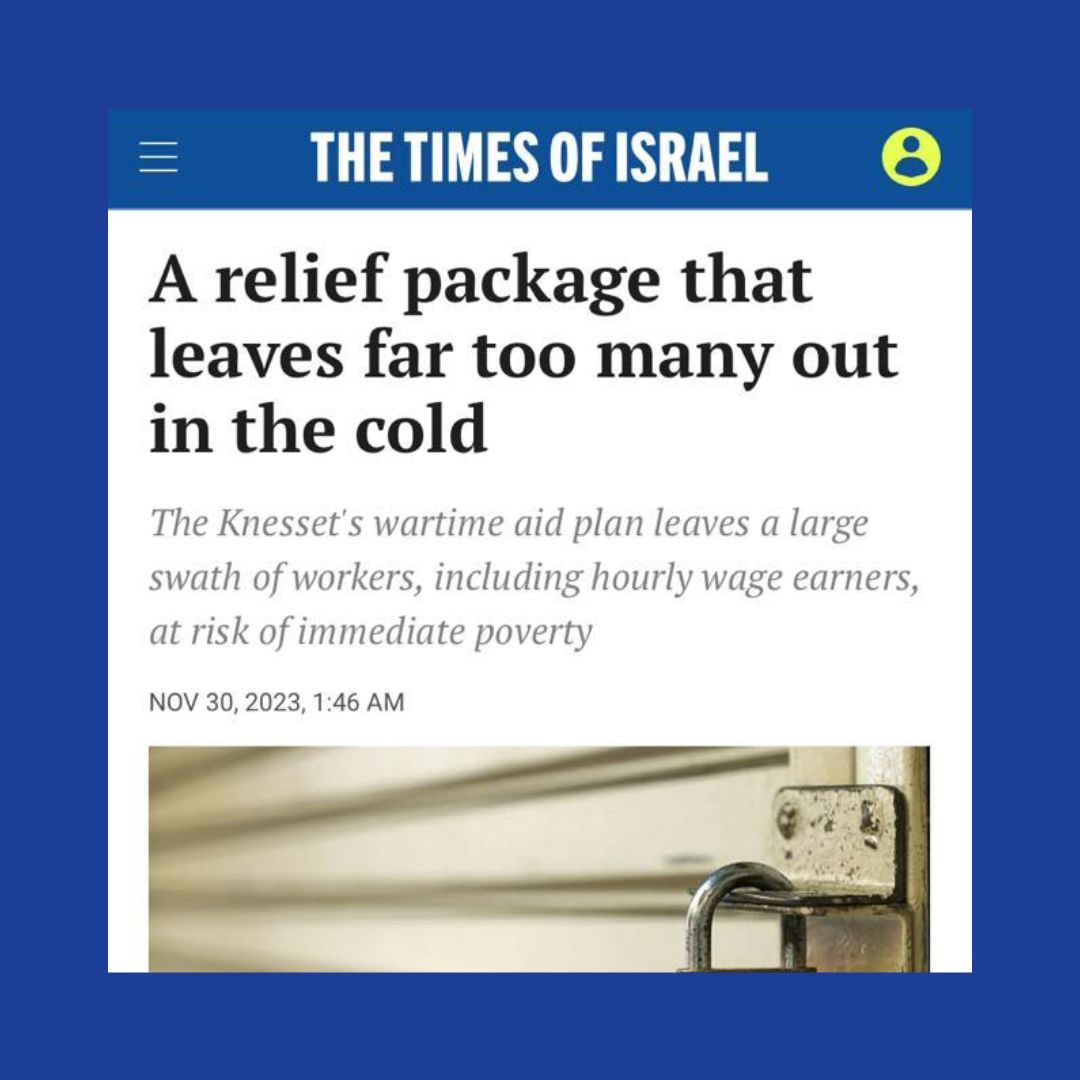121’s Defined Strategy and Decisive Action to Tackle Unemployment During Times of War

Just days into the war, 121 recognized a crucial need: supporting businesses and employees affected by downsizing.
The swift response yielded 50 strong NGOs, uniting to bolster civil society. Collaboratively, the coalition crafted an employment policy plan for government adoption and implementation. The plan prioritizes safeguarding employees and enabling private and third sectors to operate with minimal interruption.
The plan was required because the rate of shutdown of the economy was fast. Businesses and social-action organizations found it hard to sustain themselves, leading to extensive cutbacks and closures across all sectors. Consequently, employers were (and still are) under tremendous stress to implement unpaid leave for their staff, leaving them unsure of their future prospects and the possibility of acquiring services in the present.
Unfortunately, it's predicted that unemployment will peak due to the war. That's why we pleaded with top officials to act fast. we urged the finance minister, committee of ministers overseeing social and economic affairs, and chairperson of the Knesset finance committee to take swift action. We emphasized how vital it is to safeguard impacted employees, pushing for simpler unemployment eligibility and grants to employers who keep their staff.
Furthermore, it's crucial to address the predicament of countless individuals who are currently jobless and unable to receive any government aid. That's why 121 is tirelessly striving to effect change. We persistently implore the government to devise a system that would incentivize the reintegration of individuals back into the workforce, even if it's only for part-time employment. We believe it's time to encourage employers to contribute to revitalizing the job market.

121’s proposal
Our coalition’s focus is on promoting two complementary solutions that that the government could adopt:
1. Provide comprehensive unemployment benefits or alternative forms of reimbursement to workers who have been laid off or placed on unpaid leave.
2. Provide support for employers to pay employees their salary, in case their pay has been reduced.
121 demanded that the government take necessary steps to protect workers and employees
- Provide full unemployment benefits to employees who go on leave without pay, regardless of the duration, and eliminate the requirement to exhaust their vacation days before claiming such benefits.
- It is important to extend unemployment benefits to all recently fired employees, regardless of the duration of their employment. This will help those who have started new jobs but are now losing them due to the current situation.
- Provide adaptation grants to employees over 67 years old who have been laid off or put on unpaid leave. Typically, these individuals are not eligible for unemployment benefits and rely on working to supplement their pensions.
- Provide employees who are paid by the hour with full unemployment benefits. These employees often have their hours and shifts reduced by their employers, which makes it difficult for them to support their families during times of war. Calculate their unemployment benefits based on the difference between their average monthly pay over the past 6 months (prior to October 7th) and their recent earnings.
- Keep allowing unemployment benefits for those who were eligible and exhausted their maximal eligibility period in the last 12 months.
- Cancel the reduction of unemployment benefits for people under 40 who have already received such benefits in the past four years, in order to better support young adults.
- Support employers to prevent employee termination during the war. Our recommendation is to encourage employers to reduce their payroll costs by trimming work hours instead. To protect employees from financial harm, we propose that employers pay them 70% of the wage difference between original and reduced wages, and will be fully indemnified for this by the state.
The Israeli government should aid all those who have lost work and income since October 7th. Additionally, we urge the government to provide monetary incentives for the unemployed to seek new jobs and alternative sources of income.
The accomplishments we have made so far:
As a result of our efforts, the government has significantly improved the aid program, but we're still working to ensure that all worker needs are being taken into account.
The updated state aid plan ensures individuals who have been laid off or placed on unpaid leave will be entitled to receive full unemployment benefits:
- Workers over age 67 will receive compensation of 75% of their previous earnings, up to 4,000 ILS ($1,000) per month.
- The government will provide unemployment benefits to individuals with at least 6 months of work experience (3 months for people with disabilities), instead of the regular 12 months minimum.
- Those who have only received a 14-day unpaid leave of absence will be eligible for unemployment benefits, instead of the 30-day minimum required previously.
- Vacation days earned before the war will remain valid, no matter what benefits are given during the war.
The current revised policy will continue until November 30th, and we will work to ensure that it is extended as needed. In addition, there are still tens of thousands of newly unemployed people who are not entitled to assistance from the government and we are working to ensure that they receive assistance. At the same time, we are trying to convince the government to adopt a return-to-work mechanism, which will give incentives to employers to return to activity, even if only partially.
Israeli News Updates

























News Links
- Complete Chaos, No Lessons Learned": Small Businesses Appeal to the Finance Minister for Rescue from Collapse | N12 News, 15.10.23
- Self-Employed Individuals Face New Challenges: 'Businesses Are Currently Non-Functional. It's Worse Than the Corona Epidemic | Globes, 17.10.23
- Exposed on the home front: The State Should Provide Unemployment Benefits to Workers on Unpaid Leave and a Partial Wage Supplement for Employees | The Marker, 18.10.23
- The Unpaid Leave Model is Returning - But Not As You Might Expect | N12 News, 18.10.23
- "Beyond Covid-19": The Ministry of Finance Unveils Economic Plan for Emergency Period | N12 News, 19.10.23
- Can an Employee Be Compelled to Take Unpaid Leave - And When Are They Eligible for Unemployment Benefits? (Questions and Answers) | N12 News, 26.10.23
- The Government Must Not Forsake the Workers | Calcalist, 27.10.23
- The Ministry of Finance's Tough Stance: Unmoved by the Large Numbers of Unemployed | Calcalist, 29.10.23
- From Unpaid Leave to Paid Participation: The Ministry of Finance Adjusts Its Policy - What Will Employers Opt For? | The Marker, 29.10.23
- All the Holes in the Ministry of Finance’s New Aid Outline: The Workers and Businesses That Fell Through the Cracks | Globes, 30.10.23
- The Realization That We Are at War Has Not Yet Sunk in for the Treasury, but They Now Understand Their Mistake | N12 News, 31.10.23
- “Even for Food It’s Not Enough”: The Weak Populations Left Behind in the New Finance Plan | Israel Today, 31.10.23
- The Government Has Approved the Compensation Outline for Businesses and Relief on Unpaid Leave: This Is How It Will Work | N12 News, 2.11.23
- The Outline of the Unpaid Leave and the Compensation for Businesses Reaches the Finance Committee: These Are the Main Disputes | N12 News, 5.11.23
- The Treasury Announces: Unemployed Individuals Aged 67 and Older Will Receive Unemployment Benefits | N12 News, 6.11.23
- Budget Plan Overlooks the Most Vulnerable Workers | Walla News, 7.11.23
- NGO Convinces Government to Pay Workers Unemployed Due to War | The Jerusalem Post, 19.11.23
- The Battle Within the Crisis: Hourly Workers Suffer Most Amid Economic Turmoil | Shomrim News, 20.11.23
- Does the State Compensate Employers with 75% of Employees' Wages? | Globes, 21.11.23
- A relief package that leaves far too many out in the cold | The Times of Israel, 30.11.23
- October 7 devastated Israel, but philanthropy can help heal it - opinion | The Jerusalem Post, 17.12.23
- Wages Decrease, Uncertainty Rises: The Struggle of Temporary Workers in the Shadow of War | Mako, 17.12.23
Want to get involved?
We'd love to hear from you!

Share:

